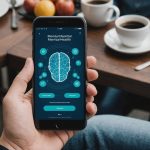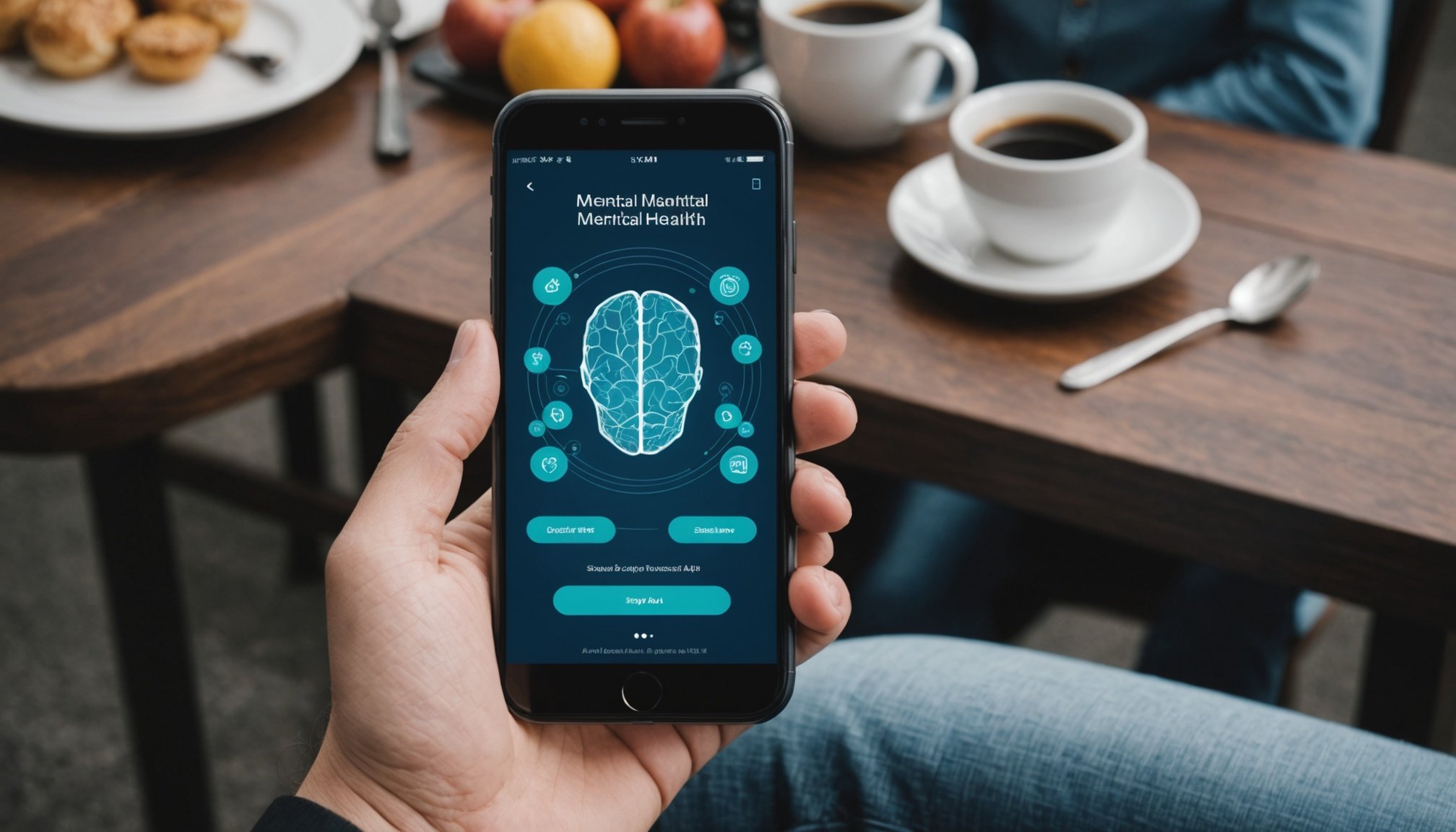The rise of AI-driven mobile apps is revolutionizing mental health monitoring. These innovative tools enable users to track their mood, anxiety levels, and other mental health indicators in real-time, offering tailored insights and support. By harnessing advanced algorithms, these apps can provide personalized recommendations, fostering positive mental health practices. This exploration reveals how technology not only enhances self-awareness but also opens new avenues for mental health care. Unlocking this potential empowers individuals to take charge of their well-being like never before.
Overview of AI-Driven Mobile Apps in Mental Health Monitoring
AI-driven mobile apps are transforming mental health monitoring by leveraging advanced technology in healthcare. These applications use artificial intelligence to provide personalised support, track emotional well-being, and offer insights into mental health patterns.
In parallel : Maximizing Your Mental Wellness: Leveraging AI-Powered Mobile Apps for Effective Mental Health Monitoring
The evolution of AI mobile apps has been significant, moving from simple mood trackers to sophisticated tools capable of analysing complex data sets. This progress allows for more accurate assessments and tailored interventions. The ability of AI to learn and adapt makes these apps exceptionally effective in understanding individual user needs.
In today's society, mental health monitoring is crucial due to increasing awareness and the prevalence of mental health issues. AI technologies play a pivotal role in addressing these challenges by offering continuous, accessible support. They enable users to monitor their mental health in real-time, providing a proactive approach to well-being.
Topic to read : Ultimate Guide to Installing a Smart Video Doorbell Using Your Smartphone
AI technologies in mental health involve various applications, such as natural language processing to interpret user input and machine learning algorithms to predict mental health trends. These innovations empower users by providing actionable insights and facilitating early intervention, ultimately enhancing mental health outcomes. Through these advancements, AI-driven mobile apps are reshaping how mental health is monitored and managed.
Benefits of AI-Powered Mobile Applications
AI-powered mobile applications in mental health offer several noteworthy benefits, revolutionising the way mental health is managed. One of the primary benefits of AI in mental health is enhanced data analysis. These apps can process vast amounts of data to provide personalised insights into an individual's mental health patterns. By analysing user behaviour and historical data, they help tailor interventions to meet specific needs.
Another advantage of mental health apps is their improved accessibility. They allow users to access mental health support anytime, anywhere, breaking down traditional barriers to care. This accessibility encourages greater engagement from users, promoting consistent monitoring and interaction with the app.
Real-time monitoring is a crucial feature of these applications. They continuously track users' mental health, enabling timely interventions when necessary. This proactive approach ensures that potential issues are addressed before they escalate, offering users peace of mind and a sense of control over their well-being.
Overall, these apps empower individuals by providing actionable insights and facilitating early intervention. This not only enhances mental health outcomes but also encourages a more informed and proactive approach to mental well-being, making mental health support more effective and personalised.
Key Features of Effective Mental Health Apps
Effective mental health apps boast a range of features that enhance their usability and impact. A user-friendly interface is paramount, ensuring ease of navigation for users of all ages and technical abilities. This simplicity encourages consistent use, which is crucial for effective mental health monitoring.
Integration of AI for predictive analytics is another standout feature. By analysing user data, these apps can anticipate potential mental health challenges, offering timely alerts and suggestions. This foresight allows users to take proactive steps, mitigating issues before they escalate.
The availability of resources and support tools within the app is vital. These may include guided meditations, cognitive behavioural therapy exercises, and educational content. Such resources empower users to manage their mental health independently, providing immediate support when needed.
Moreover, some apps offer:
- Personalised feedback based on user input
- Secure data storage to protect user privacy
- Options for connecting with mental health professionals
These mobile app functionalities make mental health apps indispensable tools, bridging gaps in traditional mental health care. By combining intuitive design with advanced technology, they offer a comprehensive approach to mental health management.
Case Studies of Successful AI-Driven Mental Health Apps
Exploring case studies of notable AI-driven mental health apps reveals their transformative impact on users. These successful AI applications exemplify how technology can enhance mental well-being.
One prominent example is Woebot, an AI chatbot that offers cognitive behavioural therapy techniques. Users frequently report improved mood and reduced anxiety levels. Through interactive conversations, Woebot helps users identify negative thought patterns and provides coping strategies.
Another success story is Wysa, which combines AI with human support. This app uses machine learning to offer personalised mental health advice, while also allowing users to connect with therapists. Testimonials highlight its effectiveness in managing stress and depression. Users appreciate the blend of automated support and human interaction, which ensures comprehensive care.
The impact of these apps on user mental health outcomes is significant. They provide accessible, round-the-clock support, empowering individuals to take charge of their mental health. Users often experience enhanced emotional resilience and greater self-awareness.
These case studies underscore the potential of AI-driven mental health apps to make a meaningful difference. By offering tailored interventions and support, these applications not only improve mental health outcomes but also make mental health care more accessible and personalised.
User Experiences and Feedback
User experiences with mental health apps are varied, highlighting both challenges and satisfaction levels. Common challenges include navigating the app interface and ensuring data privacy. However, many users express satisfaction with the personalised insights and real-time support these apps offer. User feedback plays a crucial role in the ongoing development and refinement of these applications. It helps developers identify areas for improvement and tailor features to better meet user needs.
The importance of user feedback cannot be overstated. It informs updates and enhancements, ensuring apps remain relevant and effective. Users often appreciate when their suggestions lead to tangible changes, fostering a sense of ownership and engagement.
Comparative analysis of user experiences across different apps reveals distinct trends. Some apps excel in providing comprehensive resources, while others are lauded for their intuitive design. For instance, users may favour apps that offer seamless integration with other digital tools or those that prioritise secure data handling.
Ultimately, user feedback is invaluable in shaping the future of mental health apps. By addressing challenges and leveraging satisfaction levels, developers can create more effective tools for mental health support, enhancing user experiences and outcomes.
Expert Opinions on AI and Mental Health
Understanding the role of AI in healthcare requires insights from mental health professionals who are at the forefront of these advancements. Many experts acknowledge the potential of AI-driven applications to revolutionise mental health care, citing their ability to provide real-time insights and support. However, they also stress the importance of maintaining a human touch in therapy, as technology cannot fully replace human empathy and understanding.
Ethical considerations are crucial when integrating AI into mental health. Experts highlight concerns about data privacy and the need for robust safeguards to protect sensitive information. Ensuring that AI algorithms are free from bias is another significant challenge, as biased data can lead to inaccurate assessments and interventions.
Looking ahead, experts predict that future trends will see AI becoming more deeply integrated into mental health care. This includes the development of more sophisticated algorithms capable of understanding complex emotional patterns. However, they caution that this progress must be balanced with ethical oversight to prevent misuse and ensure equitable access to these technologies.
In summary, while AI offers exciting possibilities for mental health care, expert insights emphasise the need for careful consideration of ethical implications and a balanced approach to its integration.
Practical Tips for Users
Selecting the right AI-driven mental health app is crucial for effective support. Start by identifying your specific needs, such as anxiety management or mood tracking. Research app features and read user reviews to ensure the app aligns with your goals. Consider apps that offer a trial period to test functionality before committing.
Once you've chosen an app, follow user guidelines to maximise its benefits. Regularly engage with the app to build a consistent routine. Utilise all available features, such as mood diaries or guided meditations, to enhance your mental health journey. Ensure you're updating the app to access the latest improvements and security measures.
Privacy is paramount when using mental health apps. Opt for apps with robust data protection policies. Check if the app complies with relevant privacy regulations and offers encryption for your data. Avoid sharing sensitive information unnecessarily and use strong, unique passwords for your accounts.
To maintain security, be cautious of sharing your device with others and regularly monitor app permissions. If concerns arise, contact the app's support team for clarification. By following these practical tips, users can effectively integrate mental health apps into their daily lives while safeguarding their privacy.











